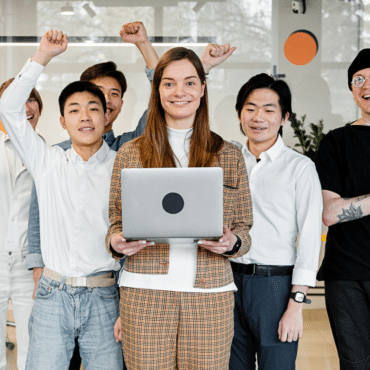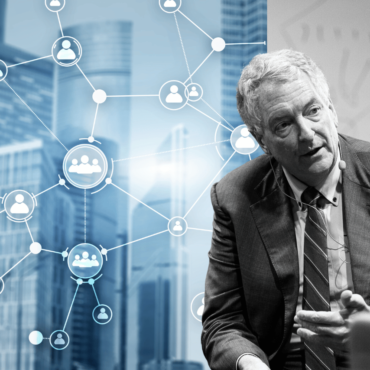

By Gary Flood, Senior Journalist, The HR Congress
WHY SHOULD YOU CARE?
Aligning talent leadership learning strategies with critical capabilities needed for business success. In this case study, learn about Philips’ new capability plan and learning journeys as pathways to ensure all employees understand digital and informatics, essential to the company’s healthcare tech future.

At the last (November 2022) HR Congress World Summit, on Day 1 we heard from a HR/L&D leader at Philips, Charu Mittra on all the hard work the company’s doing to transform itself.
Ms Mittra–Senior Director, Learning and Talent Leader, at the electronic giant’s Informatics and Innovation function—gave one of the best presentations of an already excellent conference.
As her topic is such an important topic, we wanted to bring it to a wider audience so here, we’ve tried to summarize some of her main lessons out of all this which we hope you find useful.
But as ever, nothing beats watching (or re-watching!) her speaking in her own voice–which you can do here. For now, though, we’d love you to read on.
Want to build organizational capabilities to embed an ambitious organization-wide global transformation?
The answer–according to Charu Mittra, a Senior Director in Learning, Talent, Informatics, and Innovation at Dutch multinational conglomerate corporation Philips–is fidelity to your core values allied to a wholesale embrace of people analytics. Let’s back up to see how.
In her speech at last November’s HR World Congress Summit, Ms. Mittra shared deep insights into a topic she was clearly personally and truly passionate about helping her employer achieve all it wants to achieve.
Mittra—who was speaking as part of the Summit’s Day 2 ‘HR and Organization Innovation’ stream—should know, as she helps lead a team of very talented senior leaders who are driving a new set of integrated talent development strategies across a company that’s deep into transforming itself into a healthcare tech leader.
She said she is passionate about this topic because” I really firmly believe that, as HR professionals,” if we position our talent leadership learning strategies in line with the critical capabilities that our organization needs to compete in the marketplace, that’s where HR will have the most impact on business success.
Success isn’t a strange word for her company, which after all has been around for 130 years and has always had a consistent focus on improving people’s lives, she said.
Innovation has also been a core focus and capability, she pointed outstretching all the way back to inventing the incandescent light bulbs in 1891, followed by ground-breaking innovations such as the VCR, the cassette recorder, and many other firsts in consumer electronics.
Which levers will actually make a difference once we pull them?
What’s all this got to do with HR, you may be thinking? Well, for Philips’ HR team, to change a heck of a lot of rethinking’s got to happen—and people capability is a huge part of that.
As a result, Mittra says that Philips is working hard on integrating everything from strategic workforce planning to a new capability plan. And here, a big shift has been just what a Philips ‘customer’ of tomorrow is and wants.
“I know in the HR World sometimes we like to define the internal customer as our customer, but our focus is squarely on the end customer,”
“I know in the HR World sometimes we like to define the internal customer as our customer, but our focus is squarely on the end customer,” she says.
That means she and Philips’ leadership alike really wanted to think about what are the skill/culture and talent leadership levers that need to be pulled to most positively impact customer outcomes, and which will truly make a difference to the customer experience the brand wants to provide.
Her new customer-centric narrative, she added, is being constantly refreshed and supported by as much data as the team can get its hands on. In fact, “When we start to look at any capability or skill building strategy, data is the most critical starting point for us because we want to know which the most important areas are to focus on,” she stresses.
There, the Philips talent intelligence team supports the work by mapping out what other companies in the healthcare informatics space are really doing, and what skills they developing, what skills are they buying, she says.
“We also work with our people analytics team to really think about why is informatics talent leaving and why are they staying with us?” she adds.
An interesting discovery here, she said, was that the company actually had a lot of informatics talent internally with the right skills in AI, digital, and data, but who needed to be upskilled on specific cloud skills.
Data like that has led, she said, to a firm basis to argue for the resources to build the initiatives to move forward—especially its new capability plan.
In her presentation, Chura shares a lot of equally interesting detail on the new Philips talent development plan, like new learning journeys and pathways as a determined push to make sure all 80,000 employees quickly reach the defined level of digital and informatics understanding which has been defined as critical to “leapfrog” into its new healthcare tech future.
To get her full insights on these and other important HR topics, why not check out Charu’s full, and excellent, presentation:

Written by: Eva Mezosi
Employee Experience Future of Work HR Strategy
Previous post

- 2462
- 1
labelArticles today2023.04.04.
Make your organization’s Employee Experience even better: A quick peek at EX Forum’s Heleen Mes Masterclass
By Gary Flood, Senior Journalist, The HR Congress WHY SHOULD YOU CARE? Heleen Mes is the Netherlands’ leading expert on EX. She is sharing her real-world insights on employee experience [...]
Similar posts

labelArticles today2024.07.24.
AI-Powered HR: Strategic Benefits and Practical Applications

labelArticles today2024.06.24.









Post comments (0)